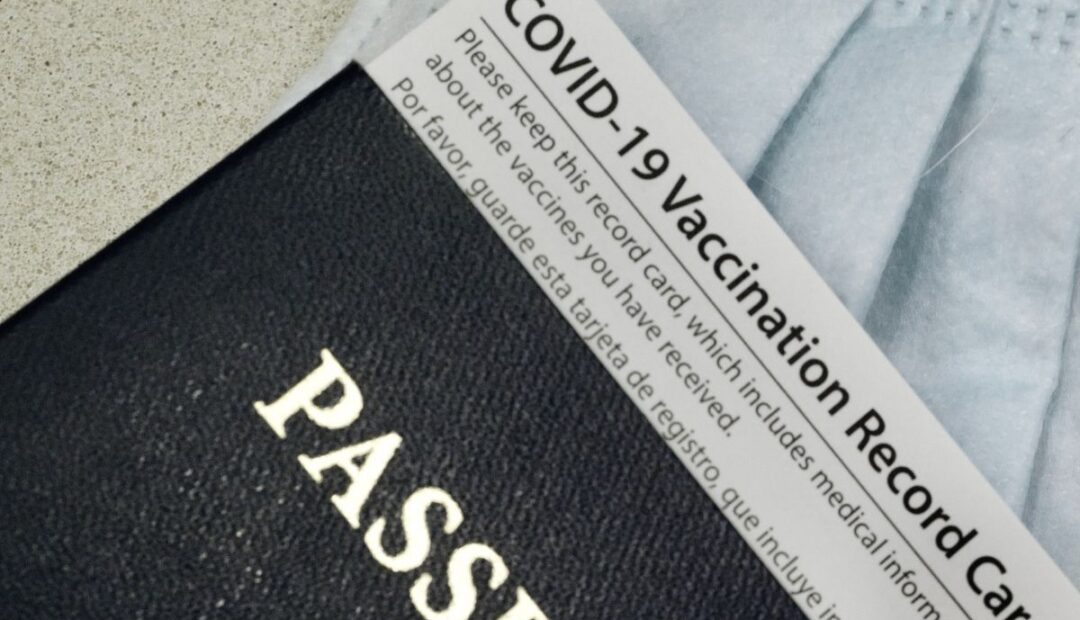Travel Vaccination Requirement Goes Into Effect

The White House has announced that it will substitute a COVID-19 vaccination requirement for the existing air travel restrictions on many air travelers entering the U.S. Under the new Travel Vaccination Requirement, nearly all adult foreign nationals traveling to the U.S. must be fully vaccinated and show proof of their vaccination before boarding their flights to the U.S. This requirement will go into effect on November 8, 2021. Beginning on that date, travelers will need to show proof of vaccination and a COVID-19 test taken 72 hours before traveling.
Current Air Travel Restrictions for Foreign Nationals
Due to the COVID-19 pandemic, the U.S. has had an air travel ban in place since February 2, 2020, which applies to most foreign nationals who have been present in selected countries within 14 days of attempting to enter the U.S. These countries include:
- The People’s Republic of China
- The Islamic Republic of Iran
- The European Schengen area, which includes 29 western and eastern European countries
- The United Kingdom
- The Republic of Ireland
- The Federative Republic of Brazil
- The Republic of South Africa
- The Republic of India
Individuals who are fully vaccinated will no longer be subject to the ban. However, they will need to show proof of vaccination before boarding their flights to the U.S. if they have been in any of these countries within 14 days of their intended entry to the U.S.
Travel Vaccination Requirement Will Not Apply to U.S. Citizens and Lawful Permanent Residents
The newly announced Travel Vaccination Requirement will not apply to U.S. citizens or lawful permanent residents. However, if these individuals are unvaccinated, they will need to provide the following before they can board their flights to the U.S.:
- Proof of a negative COVID-19 test result taken within one day of departure, and
- Proof that they have purchased a COVID-19 viral test to take after they arrive in the U.S.
Effects of the Travel Vaccination Requirement
Travelers from foreign countries who have been subject to the current U.S. air travel restrictions are likely to welcome the ban as a loosening on their ability to travel to the U.S. However, Canadian citizens and permanent residents, as well as foreign nationals living in Canada, may not be so happy with the new requirement. Since Canada was not subject to the current air travel restrictions, the Travel Vaccination Requirement is a tighter restriction for these individuals than it was before.
Vaccinations that Meet the Travel Vaccination Requirement
The White House has announced that the vaccinations will satisfy the Travel Vaccination Requirement will include all those authorized by the Centers for Disease Control and Prevention (CDC) and the World Health Organization (WHO). Both the CDC and the WHO have approved the Pfizer-BioNTech, Moderna, and Johnson & Johnson vaccines. However, the WHO has authorized other vaccines for emergency use, which also will be acceptable to meet the Travel Vaccination Requirement.
Furthermore, the Canadian National Advisory Committee on Immunization (NACI) recommended in June 2021 that consumers mix and match the Pfizer and Moderna mRNA vaccines when doses of the same vaccine were not readily available or the type of the previous dose was unknown. The NACI also approved the use of the Johnson & Johnson vaccine following a first mRNA vaccine dose. The CDC, however, generally does not recommend interchanging the two vaccines except in a few exceptional and rare situations. As a result, it remains to be seen whether some Canadians will meet the Travel Vaccination Requirement if they have received doses of two different brands of vaccines.
Exceptions to the Travel Vaccination Requirement
The White House also announced some limited exceptions to the Travel Vaccination Requirement, including:
- Children (presumably who are under the age of 12 and currently ineligible for the vaccine)
- COVID-19 vaccine trial participants
- Humanitarian reasons when persons are traveling for an important reason and vaccines are not readily available, although they would have to consent to vaccination upon entry to the U.S.
Additionally, the Travel Vaccination Requirement will not apply to land ports of entry along the U.S.-Canadian and U.S.-Mexican borders. Only essential travelers can cross through these ports of entry, and U.S. Customs and Border Patrol (CBP) is likely to continue essential travel restrictions into the foreseeable future.
Contact Our Immigration Team Today for the Help You Need
Our immigration lawyers and staff members are dedicated to handling your immigration law matter from start to finish. We keep up to date on the ever-changing U.S. immigration policies and laws so that we can use those changes to benefit our clients. Let Bashyam Global get started on your case today by calling (919) 833-0840 and talking to us about your case.